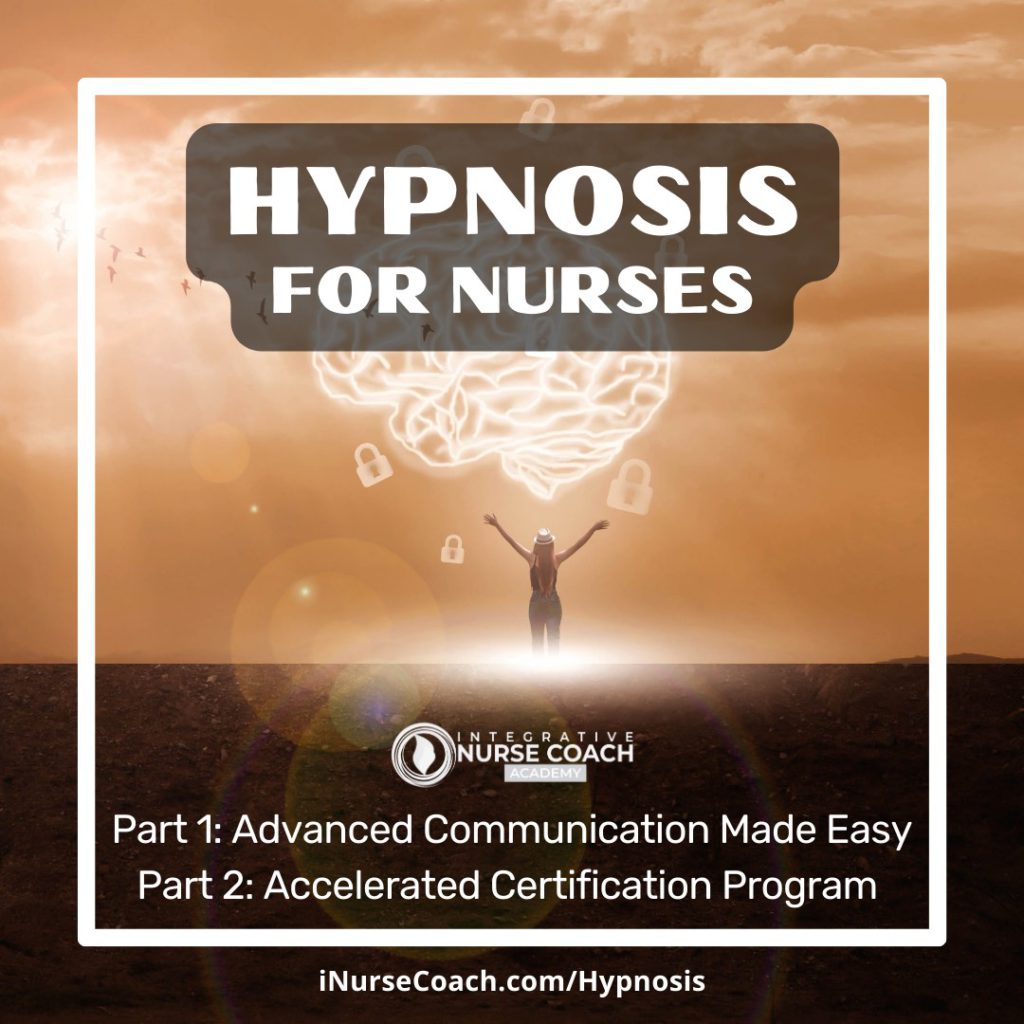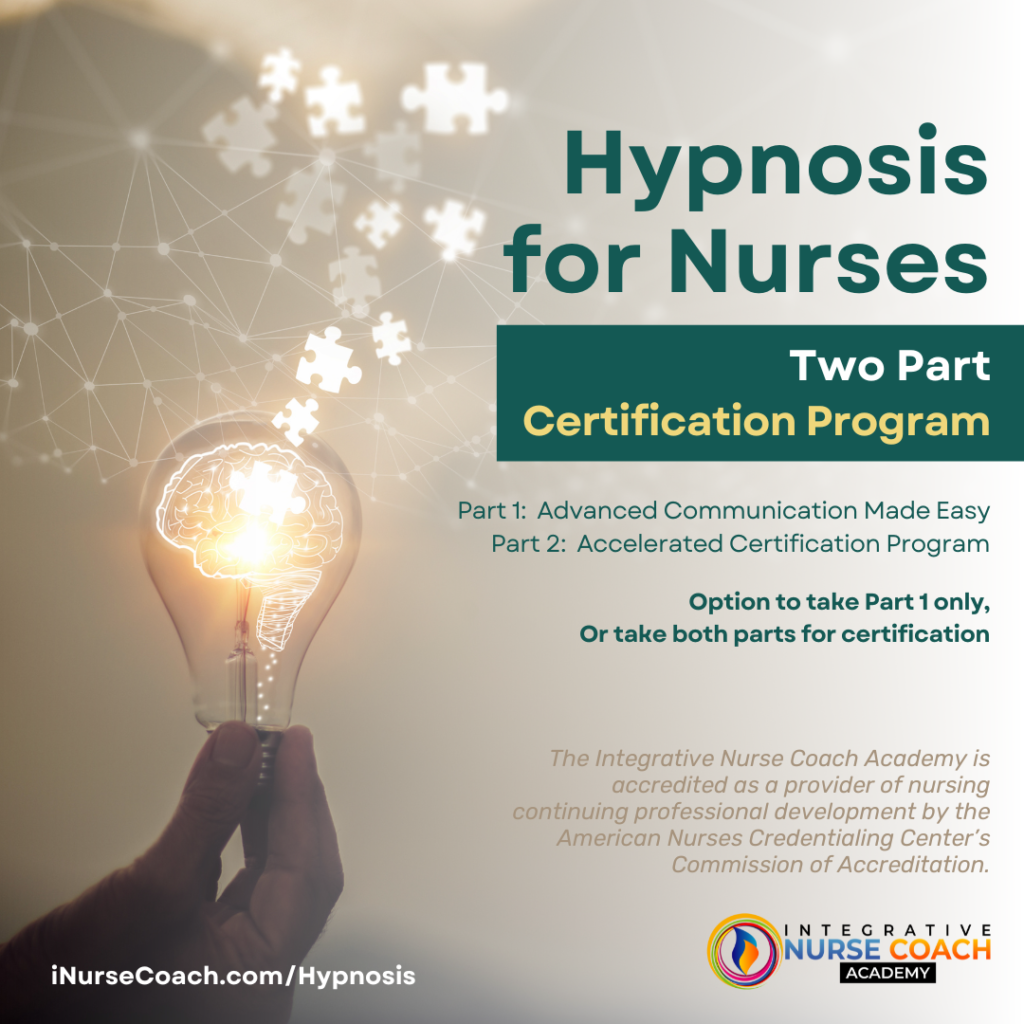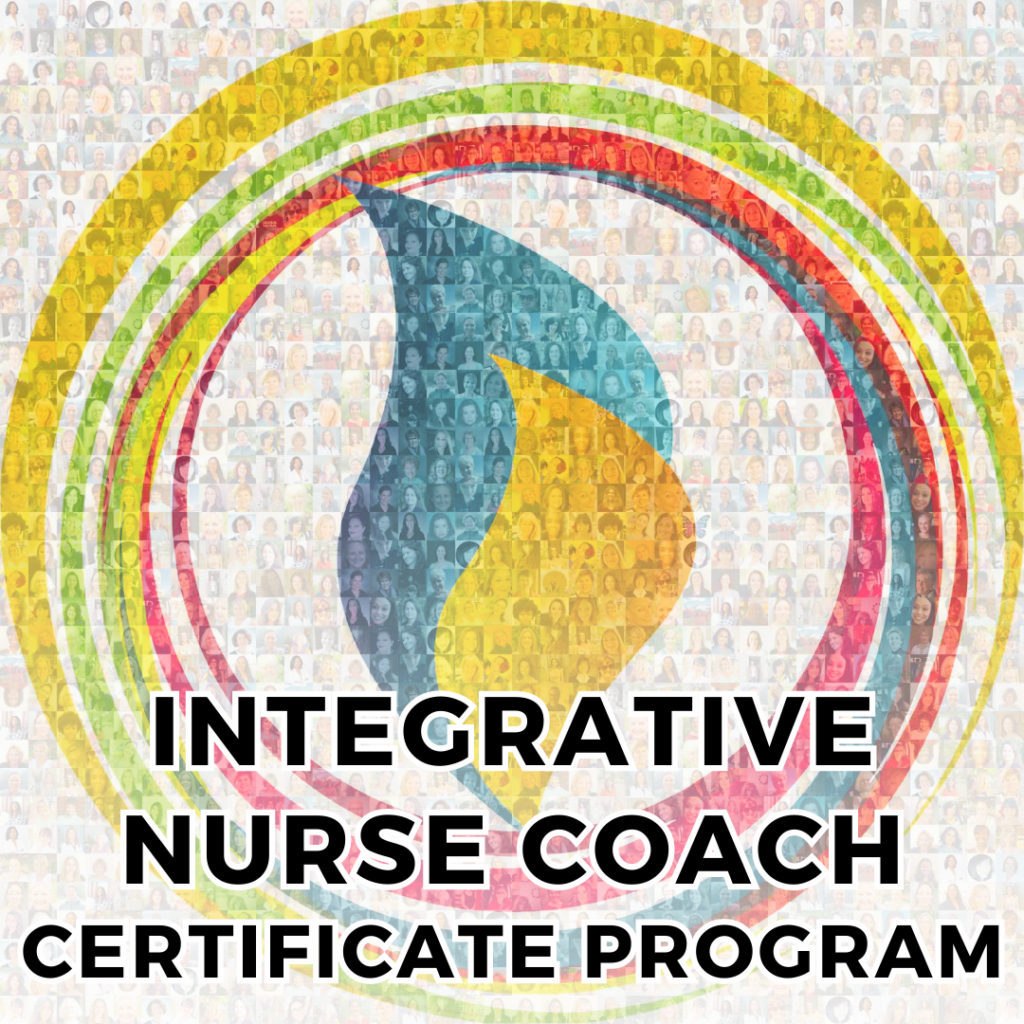Hypnosis has long been a subject of fascination and mystery, often misunderstood and misrepresented in popular culture. However, it has been proven to be an effective therapeutic tool in healthcare settings, including nursing practice. In this article, we’ll explore the benefits of hypnosis, its applications in nursing, and how nurses can integrate this powerful technique into their patient care.
Understanding Hypnosis and Hypnotic Language
Hypnosis is a natural state of focused attention and heightened suggestibility, often accompanied by deep relaxation. Contrary to popular belief, hypnosis does not involve mind control or manipulation. Instead, it allows individuals to access their subconscious (unconscious) mind, where they can tap into their inner resources and make positive changes in their thoughts, feelings, and behaviors.
The hypnotic state is characterized by a deep sense of relaxation and intense focus, where the mind becomes more open and receptive to suggestions. However, it’s important to note that individuals can experience hypnosis without being in a trance-like state.
This approach is known as conversation hypnosis, which is a form of indirect hypnosis developed by Dr. Milton Erickson, a prominent American psychiatrist and psychologist known as the “father of hypnotherapy.” His discoveries have influenced a wide spectrum of therapy, from strategic family therapy to neuro-linguistic programming.
Dr. Erickson found that indirect suggestion could lead to therapeutic behavioral change. He preferred to converse with his clients using metaphors, contradictions, symbols, and antidotes to influence their behavior instead of giving direct orders.
As a patient himself who suffered extreme pain after contracting polio at an early age, he believed it was crucial to “put yourself in the patient’s shoes” and truly understand their current situation. Unlike Freud, who encouraged self-exploration, Erickson adopted a form of brief therapy where a patient’s past history is not the primary focus of change.
Hypnotic Language in Nursing Practice
 In nursing practice, language plays a crucial role in creating healing, change, and focus, similar to the principles of hypnosis. The use of language can affect a patient’s mental state and their ability to cope with illness and pain. In this regard, a placebo and nocebo effect can also occur in healthcare.
In nursing practice, language plays a crucial role in creating healing, change, and focus, similar to the principles of hypnosis. The use of language can affect a patient’s mental state and their ability to cope with illness and pain. In this regard, a placebo and nocebo effect can also occur in healthcare.
Placebo Effect vs Nocebo Effect
A placebo effect is the positive response a patient experiences after receiving a treatment that they believe will be beneficial, even if the treatment itself is not proven to be effective. On the other hand, a nocebo effect is a negative response that occurs when a patient is given a treatment they believe will be harmful, even if the treatment itself is not harmful.
As a nurse, it is essential to communicate with patients in a way that promotes healing and fosters positive outcomes. This can involve using language that empowers patients, provides hope, and instills confidence in their ability to overcome their illness or pain. The use of metaphors, storytelling, and positive affirmations can also be effective in creating a therapeutic environment. By using these techniques, nurses can tap into the patient’s subconscious mind and influence their behavior, similar to the principles of hypnosis. Ultimately, language and communication play a critical role in nursing practice and can greatly impact patient outcomes.
Benefits of Hypnosis in Nursing
Hypnosis has been found to have several benefits in nursing practice, particularly in the areas of pain management, anxiety reduction, and behavior modification. These benefits can be achieved through both traditional hypnosis and the conversational hypnosis approach popularized by Dr. Milton Erickson (simply referred to as Ericksonian below).
- Pain management: Hypnosis has been shown to be an effective tool for managing acute and chronic pain. By guiding patients into a state of deep relaxation or even by using language skills to offering suggestions for pain relief, nurses can help reduce the intensity of pain and improve patients’ overall comfort easily. Hypnosis has been shown to reduce both the intensity and perception of pain, allowing patients to better manage their discomfort. This is achieved by guiding patients into a relaxed state where they are more open to suggestion, allowing the nurse to suggest alternative ways of experiencing pain or even replacing pain with other sensations, such as warmth or tingling.
- Stress and anxiety reduction: Hypnosis can help patients manage stress and anxiety by promoting relaxation, enhancing coping mechanisms, and increasing feelings of calm and control. Stress and anxiety are common issues that many patients face, and they can have a significant impact on a patient’s overall health and well-being. By helping patients manage their stress and anxiety, nurses can improve their patients’ quality of life and promote better health outcomes. Using Ericksonian hypnosis techniques such as metaphors and storytelling, healthcare providers can help patients reframe negative thoughts and emotions, leading to improved coping mechanisms and reduced anxiety.
- Behavior modification: Hypnosis can be used to address unhealthy habits or behaviors, such as smoking cessation or weight management, by helping patients reframe their beliefs and develop new, positive associations. Unhealthy behaviors can be difficult to change, and many patients struggle to make lasting changes in their habits and lifestyle. By using hypnosis, nurses can help patients overcome the underlying beliefs and emotional triggers that contribute to their unhealthy behaviors, making it easier for them to make positive changes in their lives. Ericksonian hypnosis techniques such as indirect suggestion and metaphors can be particularly effective in encouraging patients to adopt healthier behaviors or modify existing ones.
- Sleep improvement: Hypnosis can help patients overcome insomnia or sleep disturbances by promoting relaxation and addressing underlying issues contributing to poor sleep. Sleep is a crucial component of overall health, and many patients struggle with sleep issues that can impact their quality of life. By using hypnosis to promote relaxation and address underlying issues, nurses can help their patients get the restful sleep they need to be healthy and alert.
- Enhanced recovery and healing: Hypnosis can support patients in their recovery process by fostering relaxation, reducing stress, and promoting positive healing beliefs. Recovery and healing can be a long and difficult process, and many patients struggle with pain, stress, and anxiety during this time. By using hypnosis to promote relaxation and reduce stress, nurses can help their patients heal more quickly and with less discomfort.
Integrating Hypnotic Language Skills into Nursing Practice
In nursing, we are constantly teaching, educating, helping, advising, and coaching patients, making it an ideal area to use the power of language and suggestion to promote healing and positive outcomes. However, studies show that careless use of language can cause harm, albeit unintentionally. We may create negative suggestions, expectations, and unnecessary trauma when trying to fully inform patients. Therefore, understanding the placebo and nocebo effects in healthcare is crucial to promoting patient well-being.
The placebo effect refers to the beneficial effects that can occur when a patient receives a treatment that is not actually a biologically active intervention, but rather a placebo. This effect is thought to occur through a combination of factors, including the patient’s expectations, beliefs, and emotions, as well as the context and manner in which the treatment is delivered.
Similarly, the nocebo effect refers to negative outcomes or side effects that occur due to negative expectations, beliefs, or emotions surrounding a treatment. In healthcare, the nocebo effect can be particularly challenging since patients may be predisposed to negative thoughts or beliefs due to anxiety, fear, or prior negative experiences.
 Both the placebo and nocebo effects highlight the power of language and suggestion in healthcare. By using positive and supportive language, creating a comfortable and reassuring environment, and engaging patients in their own care, nurses can help enhance the placebo effect and mitigate the nocebo effect, improving patient outcomes and reducing adverse events.
Both the placebo and nocebo effects highlight the power of language and suggestion in healthcare. By using positive and supportive language, creating a comfortable and reassuring environment, and engaging patients in their own care, nurses can help enhance the placebo effect and mitigate the nocebo effect, improving patient outcomes and reducing adverse events.
Hypnosis is a valuable tool that harnesses the power of suggestion in a more deliberate and intentional way. Hypnosis guides patients into a state of relaxation and heightened suggestibility, allowing them to access their inner resources and beliefs, creating positive change and promoting healing. In this sense, hypnosis can be seen as a more focused and deliberate version of the placebo effect, using language and suggestion to create specific outcomes and changes in the patient’s thoughts, feelings, and behaviors.
Nurses can integrate the principles of hypnosis into their practice to further enhance patient care. By learning the skills of hypnosis and using them in a deliberate and intentional way, nurses can create powerful therapeutic interventions that help patients to access their inner resources and create positive change. This is particularly useful in situations where patients are struggling with chronic pain, anxiety, or other issues that may be difficult to manage with traditional medical interventions alone.
Dr. Milton Erickson’s conversational Ericksonian hypnosis is a valuable technique that nurses can use to guide patients into a hypnotic state indirectly. Dr. Erickson believed that indirect suggestion could result in therapeutic behavioral change. He preferred to converse with clients using metaphors, contradictions, symbols, and antidotes to influence their behavior rather than direct orders. This approach is useful in brief therapy, where a patient’s past history is not the focal point of change.
Nurses can incorporate Dr. Erickson’s approach into their practice by using metaphors, symbols, and stories to help patients access their inner resources and beliefs, creating positive change and promoting healing.
In conclusion, the placebo and nocebo effects in healthcare demonstrate the power of language and suggestion in promoting healing and positive outcomes. By understanding these effects and incorporating them into nursing practice, nurses can enhance the effectiveness of their interventions and promote better patient outcomes.
Moreover, by learning the skills of hypnosis, including conversational Ericksonian hypnosis, nurses can create powerful therapeutic interventions that help patients to access their inner resources and create positive change in their lives. And this can all occur in a common day-to-day encounter with the patient. There is no need for a deep relaxation experience, because frankly, we often don’t have that luxury in the busy-ness of the clinical arena.
Hypnosis and Nurse Coaching
A nurse coach can utilize hypnosis in practice by integrating it as a complementary therapy to support patients in achieving their health and wellness goals. In fact, hypnosis can utilize the areas of the brain to increase motivation. Leveraging this finding from neurobiology research, the nurse coach can enhance goal success.
Hypnosis, also known as hypnotherapy, induces a state of deep relaxation and heightened focus in which the patient is more receptive to positive suggestions and able to access their subconscious mind. Here are some ways a nurse coach can incorporate hypnosis into their practice:
- Create a therapeutic environment: Ensure the setting is quiet, private, and comfortable to facilitate relaxation and focus during the hypnosis session.
- Induction and deepening: Guide the patient into a state of deep relaxation and focused attention using various induction and deepening techniques, such as visualization, progressive muscle relaxation, and focused breathing.
- Reorientation and debriefing: After the hypnosis session, gently guide the patient back to their normal state of awareness and debrief on their experience. Discuss any insights or changes in perceptions that may have occurred during the session.
- Integration into overall care plan: Incorporate hypnosis into the patient’s overall care plan, using it alongside other coaching strategies and interventions as needed to support their health journey.
- Ongoing evaluation: Monitor the patient’s progress and adjust the hypnosis approach as necessary, based on their feedback and evolving needs.

By utilizing hypnosis in their practice, a nurse coach can offer patients/clients an additional tool for self-improvement, stress reduction, and personal growth, enhancing the overall effectiveness of their coaching interventions.
All nurses can use hypnosis to help patients achieve greater comfort, relaxation, and healing. Proper education and training are essential for nurses who wish to utilize hypnosis in their practice, ensuring that they can provide safe, effective, and patient-centered care.
- Integrative Nurse Coach® Academyhttps://inursecoach.com/author/integrative-nurse-coach-academy/
- Integrative Nurse Coach® Academyhttps://inursecoach.com/author/integrative-nurse-coach-academy/
- Integrative Nurse Coach® Academyhttps://inursecoach.com/author/integrative-nurse-coach-academy/
- Integrative Nurse Coach® Academyhttps://inursecoach.com/author/integrative-nurse-coach-academy/





